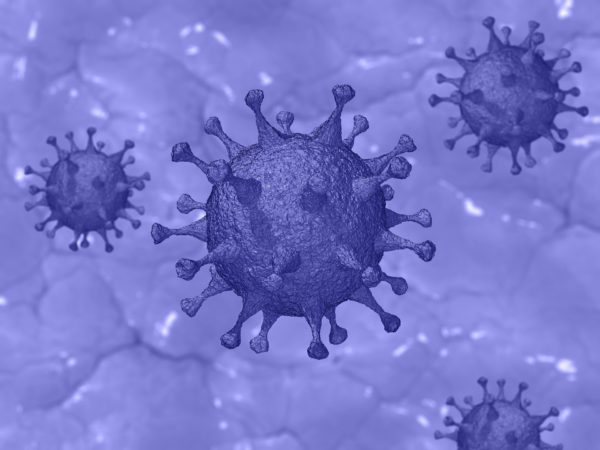A comprehensive review of studies on COVID-19, including clinical, epidemiological, laboratory and chest imaging data, shows that the most common symptom was fever (82 per cent), followed by a cough (61 per cent), then muscle aches and/or fatigue (36 per cent), says York University Postdoctoral Fellow Nicola Bragazzi, a co-author on the paper.
Shortness of breath appeared in 26 per cent of the cases, followed by a headache in 12 per cent and a sore throat in 10 per cent. Gastrointestinal symptoms appeared in nine per cent of patients.

A rendering of the novel coronavirus
The review, considered one of the first and covering up to Feb. 24, was published in the Special Issue Real Time Clinical and Epidemiological Investigations on Novel Coronavirus of the Journal of Clinical Medicine. The research looked at 60 studies with a total of 59,254 patients from 11 countries.
“It’s important to not to overlook non-respiratory symptoms, such as headache, fatigue, sore throat and gastrointestinal symptoms,” says Bragazzi of the Laboratory for Industrial and Applied Mathematics at the Faculty of Science.
“COVID-19 symptoms are indistinguishable from other viral respiratory illnesses, making it difficult to diagnose, especially as the amount of time before a fever manifests is unknown. This may cause patients to be missed initially and some may be asymptomatic.”
Chest imaging for SARS-CoV-2, however, does show a different pattern, which is becoming a hallmark of COVID-19 infection.
The review found the most prevalent co-morbidities were hypertension, diabetes, chronic liver disease and smoking.
To understand the infection better, more research is needed, especially on the rate of asymptomatic patients and beneficial treatments, says Bragazzi.
Do you have a story to share about how you are coping, or what you are doing differently, during the COVID-19 pandemic? Email us at yfile@yorku.ca.
Courtesy of YFile.
